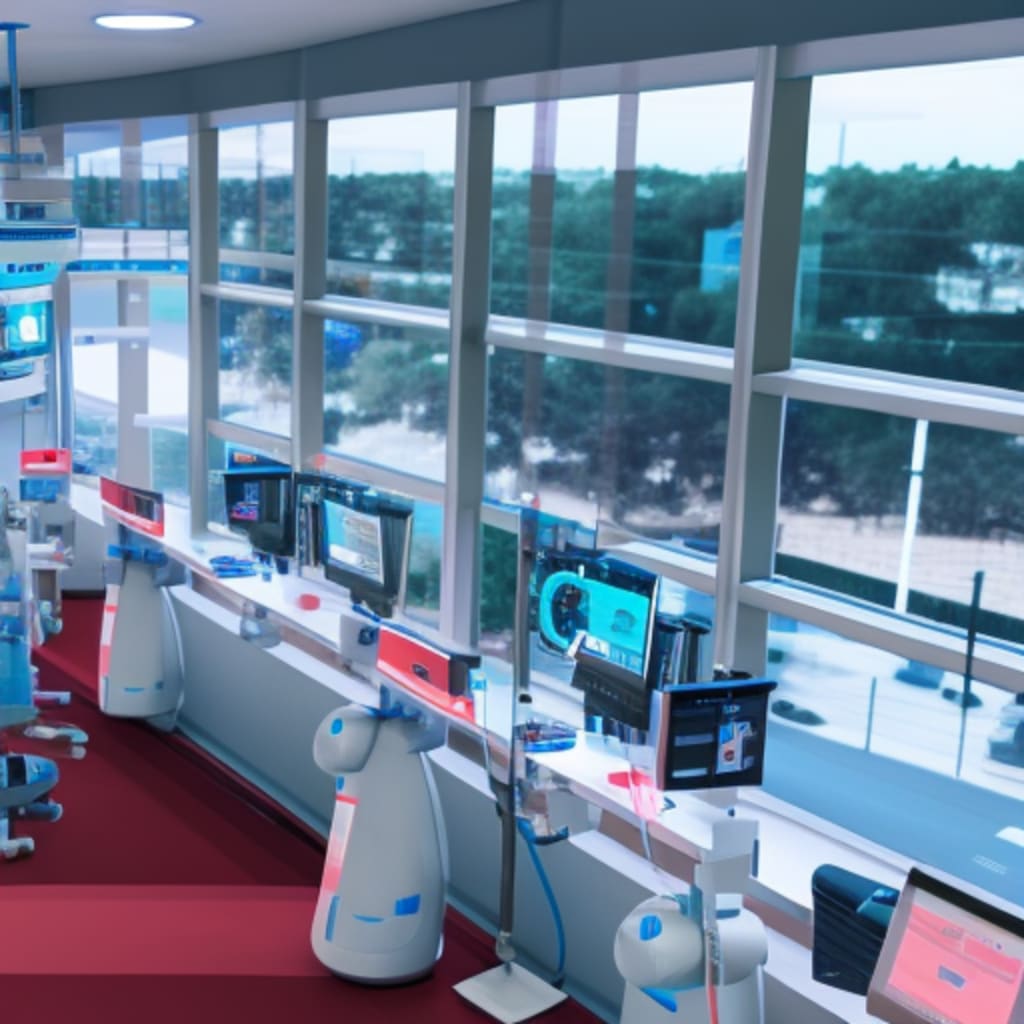Artificial Intelligence in Healthcare: Transforming Patient Care and Diagnosis
Revolutionizing Healthcare Through Advanced Technologies and Ethical Considerations

Artificial intelligence (AI) is revolutionizing the healthcare industry, offering new possibilities for improving patient care and transforming the landscape of diagnosis. From advanced data analytics to predictive modeling, AI technologies are enhancing medical decision-making, streamlining processes, and enabling personalized treatments. In this article, we explore the exciting potential of AI in healthcare, examining its applications, benefits, and the ethical considerations that accompany its integration. As AI continues to evolve, it has the power to shape the future of healthcare, providing innovative solutions and empowering medical professionals to deliver better outcomes for patients.
Enhanced Diagnostic Accuracy :
One of the significant contributions of AI in healthcare is its ability to analyze vast amounts of medical data, such as patient records, lab results, and imaging scans, with exceptional precision and speed. Machine learning algorithms can detect patterns, identify anomalies, and aid in the early detection of diseases. This leads to improved diagnostic accuracy, enabling healthcare professionals to make more informed decisions and develop targeted treatment plans. By minimizing errors and reducing misdiagnosis rates, AI technology enhances patient safety and outcomes, ultimately saving lives.
Personalized Treatment and Care :
AI algorithms can analyze patient data, genetic information, and clinical research to provide personalized treatment recommendations. This approach, known as precision medicine, considers an individual's unique characteristics and medical history to tailor interventions and therapies. By leveraging AI-driven predictive modeling, healthcare professionals can assess the probability of treatment success and potential side effects, allowing for informed decision-making. Personalized treatment plans optimize patient care, ensuring that interventions are tailored to specific needs and maximizing the likelihood of positive outcomes.
Efficient Healthcare Delivery :
AI technology streamlines healthcare processes, optimizing efficiency and reducing administrative burdens. Chatbots and virtual assistants can provide preliminary medical assessments, answer patient queries, and schedule appointments, freeing up valuable time for healthcare providers. Additionally, AI-powered automation can assist with tasks such as data entry, documentation, and inventory management, reducing human error and enabling medical professionals to focus on patient care. The integration of AI in electronic health records and clinical decision support systems facilitates seamless information exchange and enhances collaboration among healthcare teams, leading to improved coordination and quality of care.
Predictive Analytics and Disease Prevention :
AI algorithms can analyze vast amounts of patient data, detecting subtle patterns and predicting disease progression. This enables healthcare professionals to implement preventive measures and interventions at an early stage, potentially mitigating the development or worsening of conditions. By identifying high-risk individuals, AI can support targeted screening efforts and intervention strategies, reducing the burden on healthcare systems and improving patient outcomes. Predictive analytics also contribute to public health initiatives, enabling the identification of disease trends, resource allocation, and proactive planning for healthcare infrastructure.
Ethical Considerations and Data Security :
While AI holds tremendous potential in healthcare, ethical considerations must accompany its implementation. Safeguarding patient privacy, ensuring data security, and maintaining transparency and accountability in algorithm development are paramount. Striking a balance between the utilization of AI and maintaining human oversight is critical to avoid over-reliance on technology. Additionally, addressing issues of bias, fairness, and the potential widening of healthcare disparities should be at the forefront of AI integration efforts. Responsible AI implementation necessitates ongoing collaboration between healthcare professionals, technologists, policymakers, and ethicists to establish robust guidelines and frameworks that prioritize patient well-being and uphold ethical standards.
Conclusion :
Artificial intelligence is revolutionizing healthcare, empowering medical professionals with enhanced diagnostic capabilities, personalized treatment approaches, and improved efficiency. Through the integration of AI-driven technologies, the healthcare industry can advance patient care, optimize healthcare delivery, and enable proactive disease prevention. However, ethical considerations and data security must accompany
About the Creator
The Pen Crafts
With every word i write, I aim to inform, inspire and ignite conversations. Join me in exploring the intracies of the world we inhabit and the stories that shape our lives.





Comments
There are no comments for this story
Be the first to respond and start the conversation.